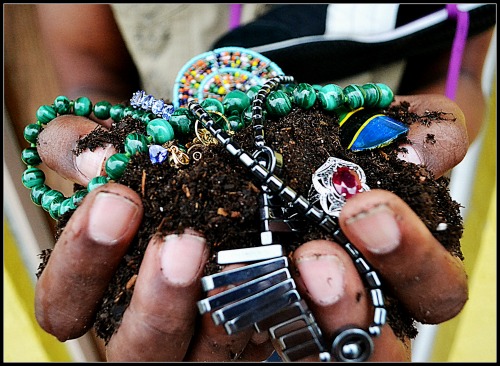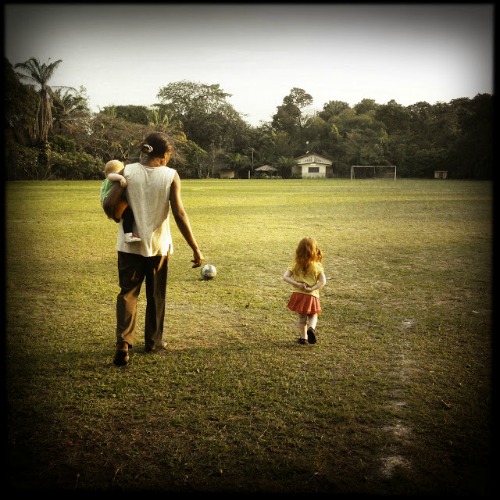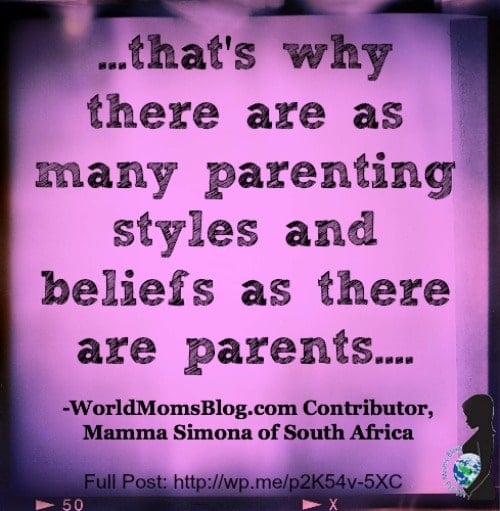
by Michelle Lewsen | Mar 31, 2014 | 2014, Being Thankful, Expat Life, Family, Oceania, South Africa, World Moms Blog Writer Interview, Writing
 Where in the world do you live? And, are you from there?
Where in the world do you live? And, are you from there?
Asking me where I am from is never going to get you a short answer. I was born and raised in Johannesburg, South Africa where I had the most idyllic of childhoods. South Africa is a magical place with a breathtaking natural landscape to rival anywhere in the world. It’s also a place full of the most vibrant, colourful people who will welcome visitors with a wide grin and open arms.
It was there that I learnt about tolerance, diversity and how to love fellow members of the human race. Nelson Mandela called South Africans the Rainbow Nation and the world thinks this is because of the country’s diversity of race. For me, it goes deeper – this Rainbow Nation refers to a culture of people with vibrantly coloured hearts.
As you can imagine, it was with great sadness that I left South Africa in my twenties and migrated to Western Australia. In the fifteen years that I’ve lived here, I have learned that Australia is not terribly different from South Africa. Here, too, you will be welcomed with a grin, a cold beer and the notion that “it’ll be right, mate!”
I count myself as one who is truly blessed to have lived two lives in such beautiful places. So here I am, Michelle Lewsen, a South African Australian. Pleased to meet you!
What language(s) do you speak?
Amazingly, even though I was raised and schooled in a country that has eleven official languages, I speak only English with any fluency. I can speak a little Zulu, a little Sotho and a little Afrikaans but not enough – it’s one of my regrets.
When did you first become a mother?
I became a mother eleven years ago and have three children who fascinate me daily with their individual idiosyncrasies, their wit and the fact that these beautiful little human beings somehow are mine.
Are you a stay-at-home mom or do you work?
I am beyond fortunate to be able to be a stay at home Mum, which works perfectly with my writing.
Why do you blog/write?
Conversely, my writing is what keeps me from going stir-crazy at home! Nobody tells you just how lonely a house full of children can feel and I am so grateful for the amazing people I’ve met through blogging and writing – people who began as Twitter handles and Facebook statuses and have become some of my dearest friends.
My writing is not only for my own sanity, but because I believe I have something to offer the world. I find it incredibly rewarding to wake up in the morning and read comments on my blog that say I’ve helped someone else through their tough day. I write because I can’t not write. Simple as that.
How would you say that you are different from other mothers?
I am a Mum, just like every other Mum out there. We all love our children, we all scream and lose the plot sometimes, we all struggle through the laughter and tears and tantrums and achievements and disappointments and fears and joys. I am no different.
What do you view as the challenges of raising a child in today’s world?
This world we are raising our kids in is a scarier place, for sure. The internet brings new friends but it also carries the risk of inviting some not-so-nice people into our children’s lives. The internet is the single greatest gift our generation has given our children’s generation and it is also the greatest curse. My biggest fear as a mother, absolutely, is the idea of my children being hurt. But then, I’m no different from you, am I?
How did you find World Moms Blog?
How did I find World Moms Blog? In July 2013, I was honoured as a Voice of the Year at BlogHer ’13 and I traveled to Chicago for the conference. In a pre-conference session, Jennifer Burden stood up and introduced herself and World Moms Blog and asked a question. She was so eloquent
and so interesting, I had to hunt her down and introduce myself. World Moms Blog fascinated me because of this belief I have that no matter where we are from, a Mum is a Mom is a Mama is an Imma is a Mother. We are all the same.
Thank you for inviting me to be a part of this incredibly talented community of writers. I am honoured and look forward to getting to know you all.

by ThinkSayBe | Mar 28, 2014 | 2014, Africa, Communication, Cultural Differences, Culture, Economy, International, Language, Life Lesson, Poverty, Travel, Vacationing, World Motherhood
 “Hey bro, vipi? How much for these shoes?” I ask the second-hand market vendor.
“Hey bro, vipi? How much for these shoes?” I ask the second-hand market vendor.
“Ah! Those, for you, those are $30 U.S.dollars,” he responds with a tone indicating that he’s giving me a deal. He didn’t know I was Tanzanian, maybe because I hadn’t yet spoken more than a few words in Kiswahili. Words that any foreigner who cared to find out would have known.
“$30?! I can get a new pair of shoes in the U.S. for that amount!” I say in return, flabbergasted by the price this man just gave me.
After a few minutes of haggling, going back and forth about the quality of the shoes, and his realization of my nationality, we do not close the sale of these shoes, but commence having a very important conversation about the poverty of Africa.
I will call this man Peter, as I do not recall his name.
As I talked down the price of the shoes, Peter said things like, “You people have money!” and “Come on, you can pay this amount easily.”
When Peter and I started talking (immediately after I decided not to purchase the shoes), I asked him his reasons behind hiking prices up so high for foreigners. He simply said, “Because we are poor here in Tanzania, and in Africa, so I have to try to earn money some way, and you guests have the money.” (more…)
I am a mom amongst some other titles life has fortunately given me. I love photography & the reward of someone being really happy about a photo I took of her/him. I work, I study, I try to pay attention to life. I like writing. I don't understand many things...especially why humans treat each other & other living & inanimate things so vilely sometimes. I like to be an idealist, but when most fails, I do my best to not be a pessimist: Life itself is entirely too beautiful, amazing & inspiring to forget that it is!
More Posts
Follow Me:


by Sarah Sensamaust | Feb 26, 2014 | 2014, Africa, Cultural Differences, Expat Life, Family, Family Travel, World Motherhood
 In about three months our lives will drastically change. My husband and I, with our two little girls, will leave the place we’ve called home for the last six years. We will probably never return.
In about three months our lives will drastically change. My husband and I, with our two little girls, will leave the place we’ve called home for the last six years. We will probably never return.
When we first came to Congo, we didn’t know much about the place, we didn’t know a soul here and we definitely didn’t have plans to start a family in this country. My, how everything’s changed.
Just as we had a “feeling” we should move to Congo. Now we have that same “feeling” that it’s time for us to leave. It just feels right and we have wonderful plans on the horizon, but boy is this hard. In fact, we’re feeling a bit lost in our last months here. This is the only home our children have ever known. Our girls have been loved by the nanny or “Mama” who’s helped us raise them for as long as they’ve been loved by us. This will be hard, but it is time.
And so I have lots of questions about how to do this, but more importantly how to do this right. Will there be something meaningful I forget to say or do? Do we make a big deal out of our last goodbyes? Or are our children really too young to understand? There will be tears. There might even be sobs. I hope we don’t needlessly upset them.
I can’t help but think about how much easier our departure would be if we didn’t have children. Their two little lives became a game changer for us living in Congo. Once we had children and the people around us began to care for them and love them, I could feel the roots sprout from my feet and bind us here. They helped us burp our girls when they were babies, nurse them back to health when they were sick, they’ve memorized their every tick and tock. This will be hard, but it is time.
Will our children have any authentic memories from these first years of their lives? Or will their only understanding of Congo come through the stories we tell them over and over? Will the photos they see when they’re older be the only images that remain in their heads? This will be hard, but it is time.
My husband and I always say the hardest part about living abroad is the leaving part. Goodbyes in your host country are usually forever. Sure, it’s hard leaving the United States and saying goodbye to parents and grandparents, but you know they’ll always be a part of your life. You’ll see them again. They’re your home base. They have the internet and email and Facebook and all those other lovely things that keep up connected to those we care about in the States.
When we leave Congo, there will be no email updates. We will not see pictures of the loved ones we leave here. We will miss births and weddings and all the minutiae in between that founded our friendships. This will be hard, but it is still the right time.
Has anyone left the country in which you’ve raised your children, never to return? Was there anything you did to make your last days meaningful or your departure easier?
This is an original post written for World Moms Blog by Sarah. You can find Sarah blogging with Jill Humphrey at Mama Congo.
Photo credit to Jill humphrey.

by Mamma Simona (South Africa) | Feb 20, 2014 | Parenting, South Africa, Uncategorized, World Motherhood

I clearly remember (as a young first-time mother struggling with my son’s colic and projectile vomiting) being told by other mothers; “Oh, that’s nothing, just you wait until he hits the Terrible Twos!”
That colicky baby turned 21 last month, and I have learnt a few things along the way! First and foremost, children tend to live up to our expectations (even our subconscious expectations). If you’re sure that you will experience the “Terrible Twos” chances are better than fair that you will. The sad thing is that most parents don’t know that it doesn’t have to be that way!
Every child is unique, and every parent-child relationship is different, that’s why there are as many parenting styles and beliefs as there are parents. That said, most parenting sites and blogs tend to reinforce certain ideas (like that of the Terrible Toddler years and Terrible Teen years) so that new parents accept them as being inevitable stages of life.
“Robert Rosenthal brought to public attention a powerful type of self-fulfilling prophecy, in a classic experiment about the expectations of teachers (Rosenthal & Jacobson, 1968). In the experiment, all the students in a class were given a standard IQ test. After the results were scored, the researchers informed the teachers that five students in the class had unusually high IQ scores and would probably be “spurters” who leaped ahead of their classmates during the remainder of the year. In reality, the five children were picked at random. By the end of the year, all the children had gained in IQ, but the five “spurters” had gained much more than other students. Evidently the teachers treated them differently after being told to expect sudden improvement.”
Since 1968 many similar experiments to the one cited above have been carried out.
“Rosenthal notes that the expectancy effect has been documented in business management (where the biasing effect is the expectations of employers about their employees), in courtrooms (where the biasing effect is the expectations about the defendant’s guilt or innocence), and in nursing homes (where the biasing effect is the expectation that a patient will get better or worse).
In all cases, the expectations tend to come true, whether they are based on any objective evidence or not.
Apparently, as a general rule, people make their expectations come true. Rosenthal’s research shows the Pygmalion effect is not only important; it is robust. It is a strong effect that occurs in many situations.”
I believed in the “Terrible Twos” with my son (because I didn’t know any better) and we battled for 2 years! By the time my daughter was born, I’d learnt a lot, and I believed we wouldn’t have any trouble at all … guess what, we didn’t! We also haven’t experienced any of the unpleasantness that some believe is unavoidable during the pre-teen, teen and early adulthood years.
Given the above, I feel that the Terrible Twos and Terrible Teens are only fact if you believe them to be!
Can you think of ways in which your children have lived up to your expectations? Do you believe that by expecting a different result you can create a different result?
This is an original post for World Moms Blog by Mamma Simona from Cape Town, South Africa.

by Katinka | Feb 17, 2014 | 2014, Adoption, Awareness, Being Thankful, Belgium, Birth Parents, Childhood, Cultural Differences, Ethiopia, Eye on Culture, Family, Friendship, Home, Life Lesson, Motherhood, Multicultural, Parenting, Penguin and Panther, Relationships, Siblings, World Motherhood, Younger Children
 We have a cat. A lot of people have a cat. Ours is named Rino. As in rhinoceros, minus the “h” and the horn.
We have a cat. A lot of people have a cat. Ours is named Rino. As in rhinoceros, minus the “h” and the horn.
Looking back, I got him when he was still a little too small, so he definitely sees me as his cat-mom. He slept in the Big Bedroom during the first months of his life, with me stroking him upon every little yelp. When he wants to cuddle, he tucks his head in my armpit, as if he wants to get nursed. He’s the cuddliest cat I know. And the best frog catcher as well.
Rino is get-out-of-jail-free card. He radiates reassurance. Peace of mind. When I’m overwhelmed by motherhood, he can convince me to allow the children to come back downstairs after their time-out. He reminds me I prefer talking above time-outs.
When the kids are finally asleep, he crashes the couch with me. There’s nothing like the sound and feel of a purring cat to take the daily stress away. Did I mention he’s fat and orange? The perfect blanket. Matches most of my cloths too.
When our son is having a bad morning, he usually refuses to put on his cloths. He goes on strike on the couch, with his head beneath the cushions. We aren’t able to get through to him nor make eye contact. His sister will try, but she always manages to make things worse. Not her fault, and she earns her credits for trying the impossible.
And then Rino comes pawing in. Takes a few bites from his food and then goes straight for his ‘big brother’. The minute I tell my son who is coming for him, we see his face again. Eleven minutes, fifty three strokes and fourteen cuddles later, he will be dressed and heading for breakfast. The same goes for homework, violin practice and heart break: Rino will drag him through.
When our adopted daughter first met Rino, she nearly jumped to the ceiling. She only knew cats as thieves that should be chased from the orphanage’s kitchen, so she hissed and motioned to get him out, hiding behind my skirts. She didn’t develop a liking for stuffed animals either, with a brother sneaking up on her with those. He didn’t particularly like his new little sister those first months and couldn’t stop scaring her away, so we ended up hiding all the stuffed tigers and cats from them both.
Two years later, their bond has grown. They do continue teasing each other. They fight like little demons over who gets to open the curtains in the morning but an hour later in school the little one will call for her brother when she’s running from kissing boys. They always end up wanting to play with the exact same box of Legos that was untouched for weeks before, but just as frequently, they will team up against me, especially when candy is at stake. I was told that is universal proof they’ve developed a sibling bond.
The same goes for Rino. Our daughter considers him part of the family now. She demands we talk about him with first ànd last name, our family name, and she doesn’t believe it’s fair he’s not allowed to go to the zoo with us. He would love the big cats, you know. I’m glad Rino is visibly terrified inside moving vehicles so in the end our daughter’s more or less convinced he wouldn’t really like joining us.
A few weeks ago, my daughter asked how Rino came to our family. Did he come willing? Or was he taken from his mommy? After we hesitantly told her it was the latter, she immediately went to find him and whispered in his ear, “You’re just like me!” Ever since, she considers him her little brother even more.
He has become her mirror, in a way. Whenever she’s fantasizing about what she would like to tell her birth mother, he’s a major part of her story. She would like to send her birth mother pictures and drawings of Rino, but not of herself. Pictures of Rino sleeping in the bird house, of Rino coming from the woods when he hears our car approaching, of Rino sleeping with his paws in the air and head to the side, like a wrongly assembled toy. She wants to tell her all about him.
But most of all, she wants to tell her birth mother that we are such great and loving parents.
For Rino, of course.
Do you have pets that enrich your family? Do they help your children cope with life’s sharp edges? Feel free to share about their funny and serious contributions in your daily life!
This is an original post to World Moms Blog by K10K from The Penguin and The Panther.
The picture in this post is credited to the author.
If you ask her about her daytime job, Katinka will tell you all about the challenge of studying the fate of radioactive substances in the deep subsurface. Her most demanding and rewarding job however is raising four kids together with five other parents, each with their own quirks, wishes and (dis)abilities. As parenting and especially co-parenting involves a lot of letting go, she finds herself singing the theme song to Frozen over and over again, even when the kids are not even there...
More Posts

by Jill | Jan 15, 2014 | 2014, Africa, Being Thankful, Cultural Differences, Expat Life, Family, Food, Living Abroad, Motherhood, Poverty, World Motherhood
It used to be so easy.
A $30 box of Rice Krispies was worth writing home about. Sewing pillowcases from pagne fabric was so exciting that I had to Skype my friend in Virginia. Our morning oatmeal topped with cheap passion fruit was worthy of photographic documentation.

I couldn’t stop collecting stories from the new people who suddenly surrounded me. I clearly remember walking to my neighbor’s house one night thinking excitedly, “I am walking…in Africa!” and wondering if I should write a poem.

Now, everything about my life seems either too complex to describe, or just not worth it. A few weeks ago I tried to write a fluff piece about the blue tins of Nivea lotion that are ubiquitous around Kinshasa and before I knew it, I was going on about globalization. Other things, I just forget to mention. I don’t notice anymore that it’s weird to pay $40 for laundry detergent, soak your veggies in filtered water and vinegar, stop your car conversation briefly to say “pas aujourd’hui” to a seven-year-old beggar, or pop a live worm out of a person’s skin. These events are ticked off neatly in the daily rhythm of life. I don’t honor them with the thought I once did.
When I sit down to write about my life in Kinshasa, my mind is blank. Sometimes I tell myself that this sudden block is self-preservation. After almost three years, the compounding effects of this city are just too much. In order to function as a nurse and a teacher and a mother and a friend and wife, I can’t stop and ponder every injustice; whether it’s my righteous indignation at the price of the imported fruits I can very well afford to buy, or the story my gardener tells me about the three pregnant teenagers he and his wife feed every day, sometimes giving up their own portion of dinner to do so.
At other moments, I pardon myself by remembering that my lack of enthusiasm is the natural progression of time and familiarity. The honeymoon period with Africa has passed and now I’m just living life. No wonder I don’t hold my pillowcases in rapt reverence anymore. They’re just my red and white pillowcases, getting a little grimy and thin with age. The sellers of trinkets tap at my car windows and I greet those that I know with an open window and a few words and ignore the others. It’s not dramatic, it’s the way to the grocery store.
Then there are the times I berate myself. I’ve become comfortable in my pretty bubble. I let it happen. I cancel French lessons to go to kickboxing class. I allow my housekeeper to buy fruits and veggies for me instead of trekking down the hill to the market and doing it myself. I haven’t learned Lingala. I’ve never seen where the woman who helps me raise my children lives. I’m ridiculous for not being able to write about the Congo. I’m not satisfied with rice and beans and spend hundreds of dollars on imported food that sometimes goes bad before it’s eaten. I don’t listen enough and complain too much. Just another expat.
My parents came to visit Kinshasa just after Christmas – their first time. I felt sad that I couldn’t seem to muster excitement for showing them “our life in Africa.” I couldn’t seem to tap into that newcomer’s elation and share it with them. I hardly took any photos (usually an obsession) and was uninspired by the shots I did snap. My suggestions for food, sights, and experiences were halfhearted. I couldn’t figure out what to do. Even in retrospect, I can’t figure out what I could have done to give them a more authentic experience of my home – which I consider to be wonderful in so many ways. Trying to provide a planned glimpse into my contradictory life proved impossible.
Congo is often described as a country of vicious contradictions: a land bursting at the seams with diamonds, coltan, and fertile dirt yet home to some of the poorest people on earth. NGO workers throw up their hands in frustration and spit nails about failed projects over too many drinks at night. Many of my Congolese friends struggle with the creeping knowledge that they’ve always truly believed it will get better, and it never has. No one I’ve asked has any great ideas. Everyone is just doing the best they can.
I’m not sure what to do with the reality of the Congo I know, so I do the very best I can. Sometimes, that means that I throw myself into the stories of those around me, asking questions I know will lead to heartbreaking tales. Sometimes I read Celebrity Baby Blog instead of Congo Siasa. Sometimes I eat beans and rice. Sometimes I complain loudly about the price of my cereal and buy the box anyway. Sometimes I talk incessantly about the number of mothers and babies who die in this country every day to people who I know are not interested. Sometimes I hear my daughter speaking Lingala and smile proudly.
Sometimes I fret that when I no longer live in Kinshasa, all I will want to do is live in Kinshasa.

What things about your life are too complicated to talk about or even ponder?
This is an original post written for World Moms Blog by Jill Humphrey. You can find Jill blogging with Sarah Sensamaust at Mama Congo.
Photo credits to the author.

 Where in the world do you live? And, are you from there?
Where in the world do you live? And, are you from there?

 “Hey bro, vipi? How much for these shoes?” I ask the second-hand market vendor.
“Hey bro, vipi? How much for these shoes?” I ask the second-hand market vendor.














